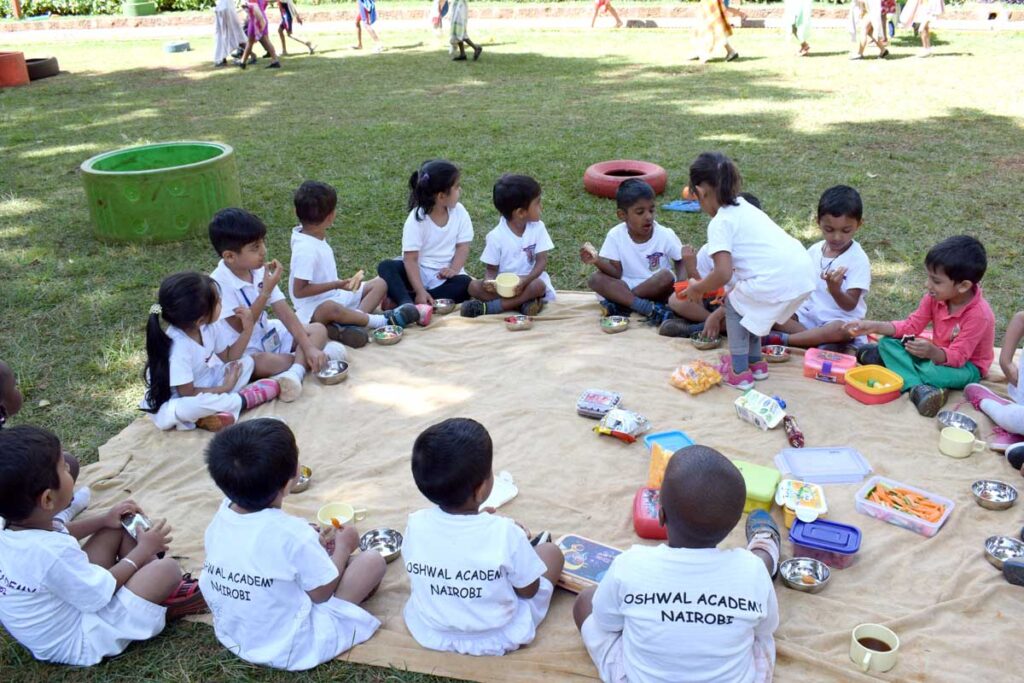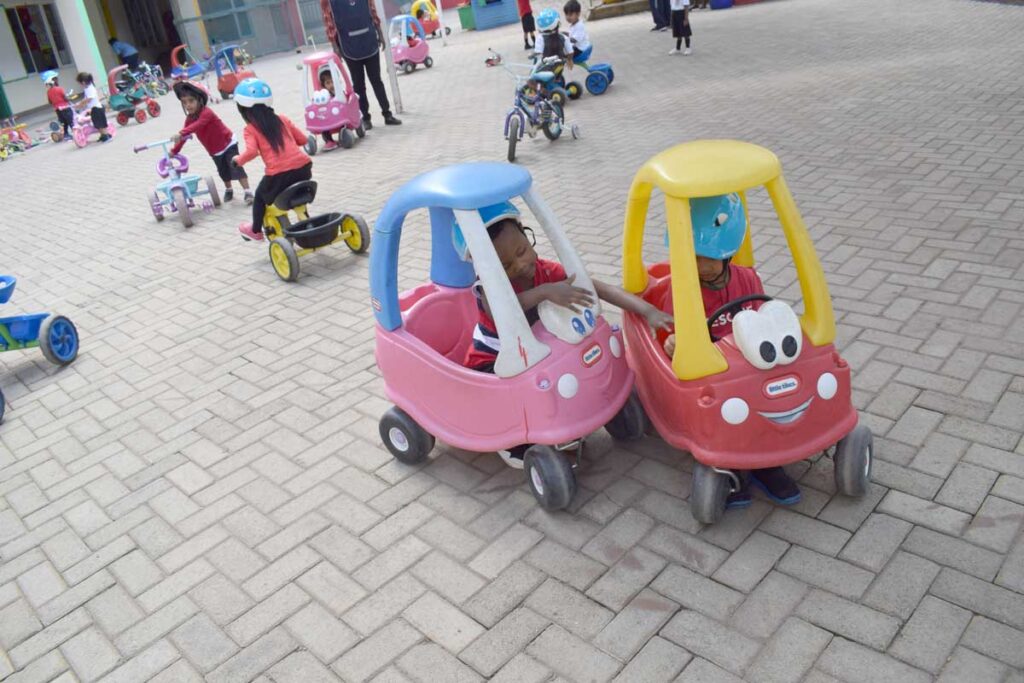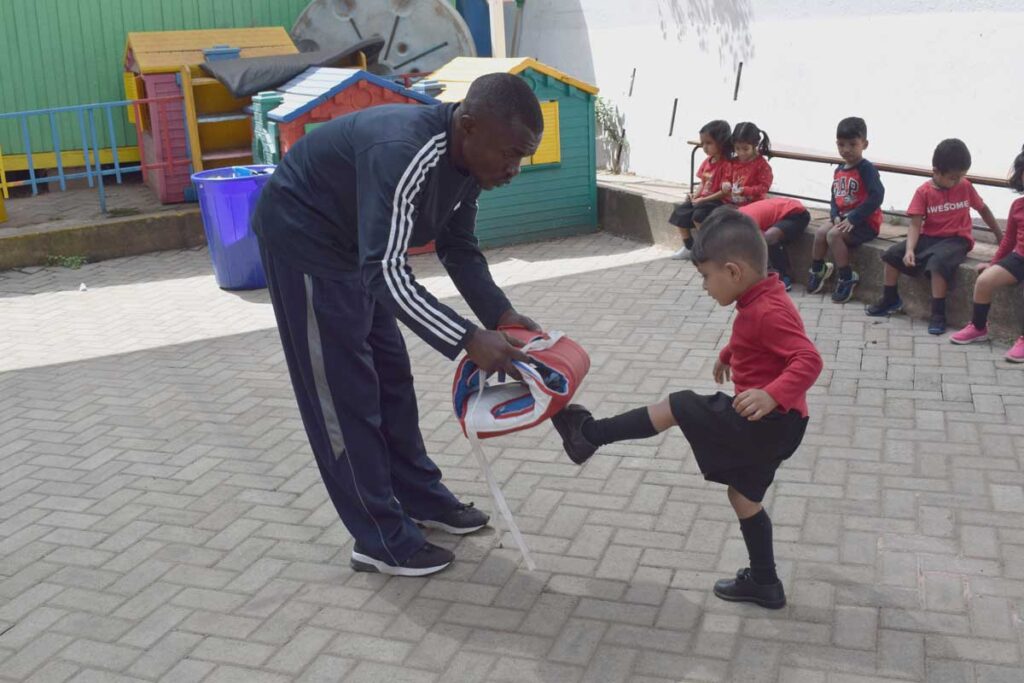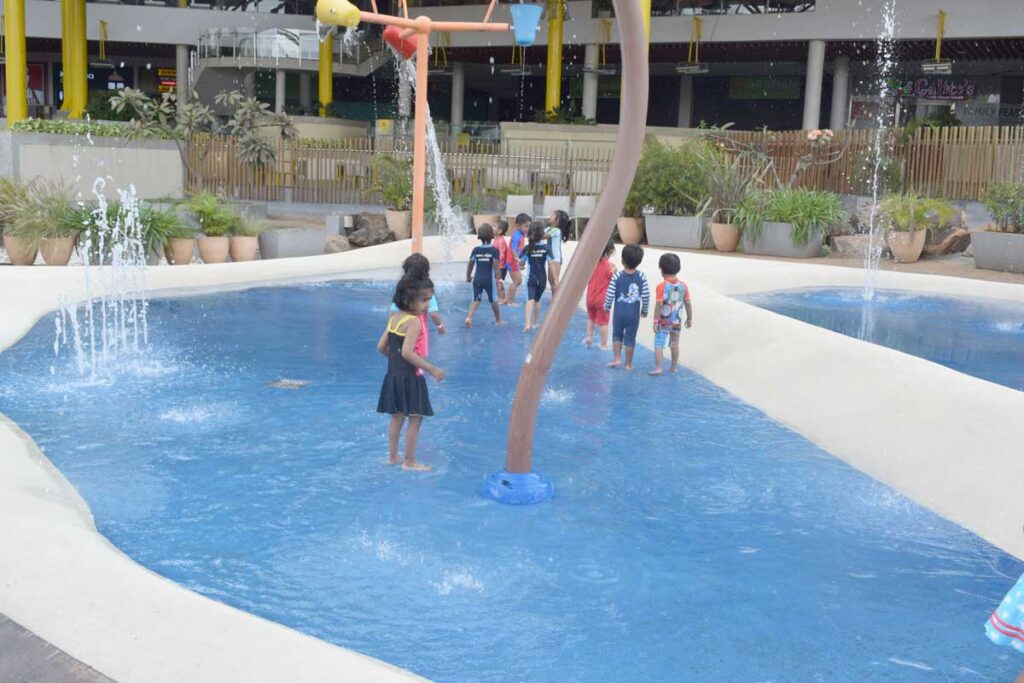2.5 to 3.5 Years
Pre-School
Preschool-aged children learn through discovery and exploration in their daily surroundings. Our well-equipped setting fosters a developmentally appropriate environment where children encounter learning and discovery that promotes the development of cognitive, motor, social and emotional skills.
Class Information
Class Day
Monday - Friday
Class Timings
8:00am - 12:30pm
Age
2.5 - 3.5 Years
Class Prospectus
Download File
Class Description
Pre-School aged children learn through discovery and exploration in their daily surroundings. Our well-equipped setting fosters a developmentally appropriate environment where children encounter learning and discovery that promotes the development of cognitive, motor, social and emotional skills.
Oshwal Academy Nairobi Nursery recognises that each child is unique and has the potential to succeed in life. At this stage of learning, a child will be mainly learning through play-based activities. They also learn about routine and developing early literacy and Maths skills, learn about the world around them and social skills.
Curriculum
The Early Years Foundation Stage (EYFS) is a curriculum for children aged three to five years old. This is divided into three prime aspects and four specific areas of learning. The three prime aspects of learning are:
Personal
Social
and Emotional Development.
One of the main aspects of a child’s time at Preschool will be a focus on their personal, social and emotional development.
They will be encouraged to develop positive relationships, to play with a variety of friends and to understand the feelings of others. There will be opportunities to build confidence and self-awareness, and also to manage their feelings and behaviour.
Communication and Language
Communication is a key area of a child’s learning in Pre-School. They spend lots of time sharing rhymes, songs, stories and playing games to develop their speaking and listening skills. They are encouraged to learn to listen carefully, to develop concentration, to respond to questions and instructions, share ideas and experiences and take part in conversations.
Physical development
A child is given lots of opportunities to move in different ways, for example, running, jumping, balancing and playing with balls. Another important aspect of physical development at this stage is learning to hold and use tools, such as scissors, and also to use pencils and pens to draw lines and shapes.
A child also begins to understand how to look after themselves and be healthy. In addition to these three prime aspects of learning, there are four specific areas:
Mathematics
In Pre-School, a child is given opportunities to explore numbers and shapes in their play. For example, they may be encouraged to count objects they are playing with and to compare two groups of objects. They will probably begin to represent numbers using their fingers, marks on paper or pictures.
Understanding the world: A child will learn about the world around them and they will be encouraged to use simple technology and equipment.
Expressive Arts
In Creative Arts, learners develop their imagination and creativity. A child explores different media and materials and is encouraged to use their imagination in a range of different experiences. Creative Arts are integrated into all learning areas.
Preschool has a different IEYC Unit every term. The IEYC is designed around eight learning principles, that we consider essential to children’s learning and development.
Literacy
The ‘Communication’ section above outlines some activities to develop speaking and listening skills. In addition to sharing lots of stories, a child is encouraged to handle and look at books independently and to begin to learn about how stories are structured. A child is encouraged to draw, paint and make to develop control and hand-eye coordination. They also begin to learn to copy the letters in their name.
In Pre-School the sounds are taught using the jolly phonics programme. Jolly Phonics is a comprehensive programme, based on the proven, fun and multi-sensory synthetic phonics method that gets children reading and writing from an early age. It is effective across the different abilities, including ESL learners.

Class Details
Related Classes
We have designed their class environment carefully to aid the toddlers in achieving independence.
1.5 - 2.5
Years
20:2
Class Size
The basics of learning are catered through fun activities that help each child develop vital skills.
3.5 - 4.5
Years
25:2
Class Size







